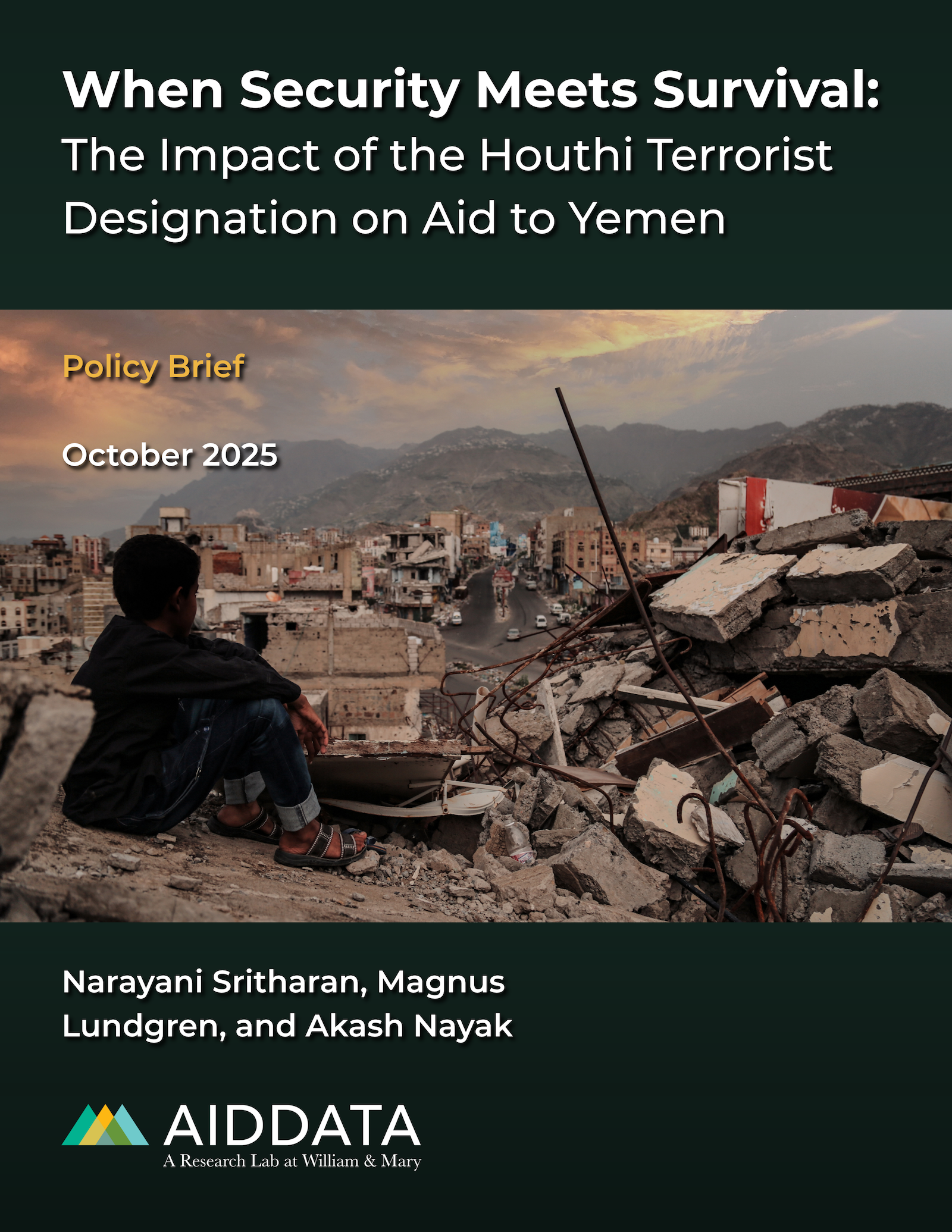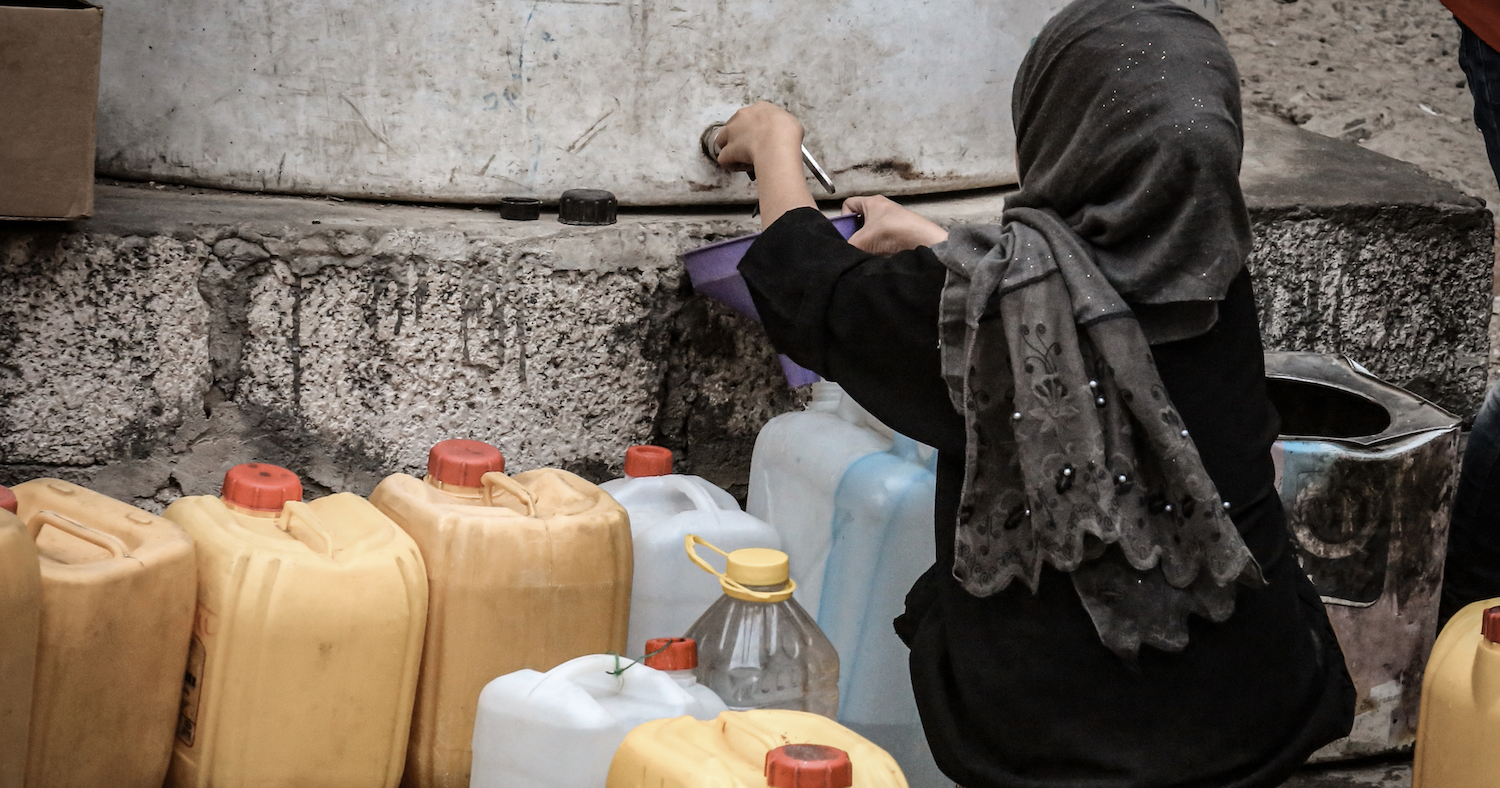
When Security Meets Survival: The Impact of the Houthi Terrorist Designation on Aid to Yemen
Date Published
Oct 31, 2025
Authors
Narayani Sritharan, Magnus Lundgren, and Akash Nayak
Publisher
Citation
Sritharan, S., Lundgren, M., & A. Nayak. (2025). When Security Meets Survival: The Impact of the Houthi Terrorist Designation on Aid to Yemen. Policy Brief. Williamsburg, VA: AidData at William & Mary.
Abstract
Globally, terrorist designations often mobilize more aid as donors step in to stabilize fragile states, as shown by a cross-country analysis of 132 countries from 2001 to 2021. The designation of Ansarallah, a rebel movement also known as the Houthis, in Yemen is a striking exception. The rapid cycle of designation, delisting, and re-designation of the Houthis created volatility that amplified donor hesitation and banking restrictions amidst a profound humanitarian crisis. Humanitarian exemptions existed but were too narrow and unclear to reassure banks or NGOs, leading to costly workarounds and program withdrawals. As a result, aid disruptions fell hardest on Houthi-controlled areas, where most Yemenis live, triggering clinic closures, broken nutrition pipelines, and rising household debt. The Yemeni case demonstrates that counterterrorism designations can have cascading consequences for a humanitarian response, far beyond their initial legal intent.


